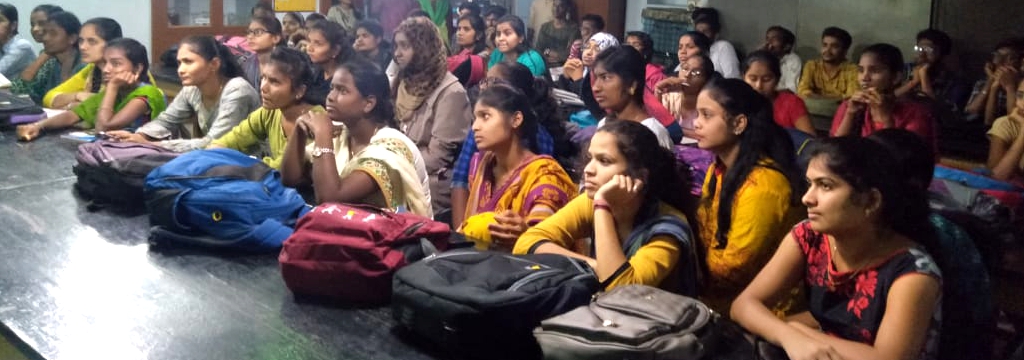Animal Ethics starts working in India

Animal Ethics has started to work in India, beginning with a series of talks at universities about speciesism, the moral consideration of animals, and concern for wild animal suffering. On January 3, we gave a talk at Osmania University and on January 9 and 30 at Andhra Vidyalaya College. Our talks are mainly for students in fields relevant to nonhuman animals, especially wild animals. This includes the sciences of biology, animal welfare, zoology, and related ones. We plan to carry out events for other audiences at universities across the country.
During the next weeks we will be giving talks at other universities, including the University of Hyderabad, Rajasthan University, St. Ann’s College, St. Francis College, and Maulana Azad National University.
You can see a short clip of one of these talks in this video, where the concept of speciesism is being presented to university students:
Another short clip of a different talk can be seen here
You can also see some pictures from the events here

There are powerful reasons to consider work in India very promising for spreading an antispeciesist approach and concern for wild animals. India’s population, which is close to 1.4 billion now, is predicted to continue to increase rapidly in the next decade, and it will become the most populous country in a few years. India is also one of the fastest developing countries, and it has been estimated that may have already become the world’s fifth largest economy.1
With its diversity of cultures, India still has some common values across regions, like ahimsa (non-violence). There is also widespread concern about the wellbeing of sentient animals, with over 30% of the population stating they do not to eat animals.2 This makes it a particularly promising place for outreach.
As in the rest of the world, concern in academia about wild animal welfare is very low. There are some projects focused on improving the wellbeing of animals like elephants, though they are very rare. Yet, India as a sub-continent is one of the major hotspots for biologists due to conservationist efforts, so it is a place where influencing natural scientists could have a major impact.
Most of the thousands of animal defense organizations around the country tend to focus on issues such as stray dogs, with only a few caring about animals exploited as resources. India is, in addition, one of the leading producers and consumers of farmed animal products and animal exploitation is increasing across the country.3 Therefore, Animal Ethics’s vision can help to make a difference not only for wild animal suffering, but for animal advocacy in general.
In addition to our first series of talks at universities, we have begun to network with the existing animal advocates in India. This month we’ll start distributing educational materials that, while similar to the ones we are distributing in English and in six other languages, are specifically for Indian audiences. We plan to start building a network of people concerned about wild animal suffering across the country, as we have done in other places.
All this, like the rest of our work, is possible only thanks to the people who support our work. If you would like to see us continue and expand our work, consider giving us a hand.
Notes
1 International Monetary Fund (2019) World Economic Outlook Database, October 2019, Washington D.C.: International Monetary Fund [accessed on 14 January 2020].
2 Office of the Registrar General & Census Commissioner, India (2014) Sample registration system: Baseline survey 2014, New Delhi: Ministry of Home Affairs [accessed on 20 January 2020].
3 Food and Agriculture Organization of the United Nations (2019) “Live animals”, FAOSTAT [accessed on 17 January 2020].